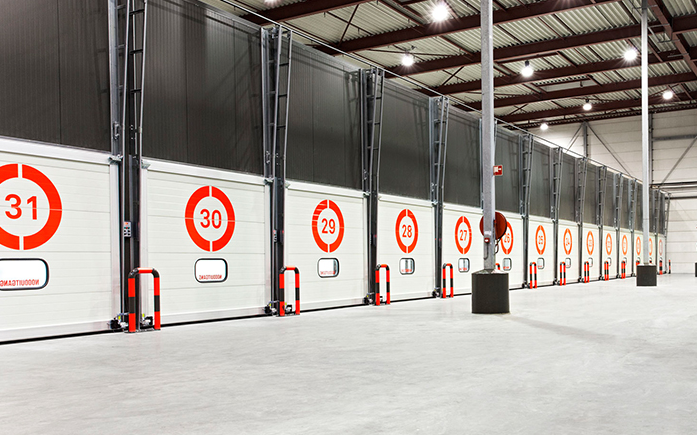
The creation of partnerships throughout the banana supply chain is critical to the future success of the industry as a whole. In the long run, the industry requires a sustainable supply chain in terms of environmental, energy, risk and waste costs. Through collaboration and sharing information the supply chain will become more optimised, and eventually this will result in mutual benefits for all stakeholders.
The rise of retail channels has stabilised contracted business and decreased the trading volumes for wholesale markets. As a result, the sector evolved and strict requirements for ripening facilities became the standard. As the retail channels are gaining more market share and power, the role of a ripening facility is changing. Due to pressure on margins each ripening facility will have to determine its future.
Two major flows can be distinguished, each of which can only be a success when the right vision spreads throughout the company: You either focus on service levels, invest in facilities and become full service providers, or you continue to trade and invest in banana trading volumes.
Service providers need to stand out in their state-of-the-art facilities to provide the best possible service. Therefore, more information needs to be mutually shared, as full transparency delivers the best results to the organisation and the supply chain as a whole. This sustainable approach, through collaboration, is contrary to the origin of the banana supply chain, in which traders create a black box by keeping information in order to use the advance knowledge of market fluctuations to their benefit. By opening up, the service provider becomes a partner instead of a supplier.

As a service provider, United Fresh Services aims to achieve higher quality levels through tacit information and measurement. Our ripening facility is state-of-the-art and centrally located in the Netherlands on the premises of one of the major Dutch transport companies, a cooperation that ensures efficiency and cost reductions in the supply chain are made. Being independent is critical to the success of United Fresh Services, as by having this status any brand can be delivered and quality controls can be made neutrally.
Innovations are continuously implemented inside the ripening facility. ranging from hardware or software updates to the machines and measurement tools used. Partnerships have also been established for decision making in order to optimise processes and to gain knowledge on determining protocols.
The majority of the industry expresses quality and ripeness by providing subjective quality reports, based on scent, firmness, colouration, temperature, brix levels or a combination. While United Fresh Services values these indicators, it also believes technical know-how allows it to look for new parameters. Expressing the quality objectively ensures that fruit will be stored and ripened correctly. In addition, feedback to farmers can be provided using quantified data.
All parties within the supply chain will benefit from a service provider like United Fresh Services that is on a mission to be transparent and innovative to maximise efficiency. The end customer will receive a high quality product that is ripened by the latest technology, while the farmer will receive continuous feedback on its product quality.
Co-operation in the supply chain should result in more food safety, more organic produce and more fair trade from seed to table.
Tim Priem is managing director of Netherlands-based banana ripening specialist United Fresh Services, which he established with business partner Niels Borgers in January 2014.



